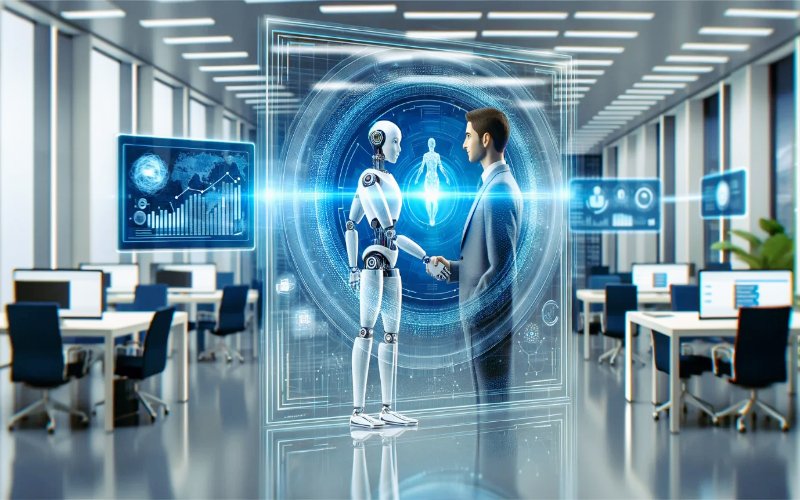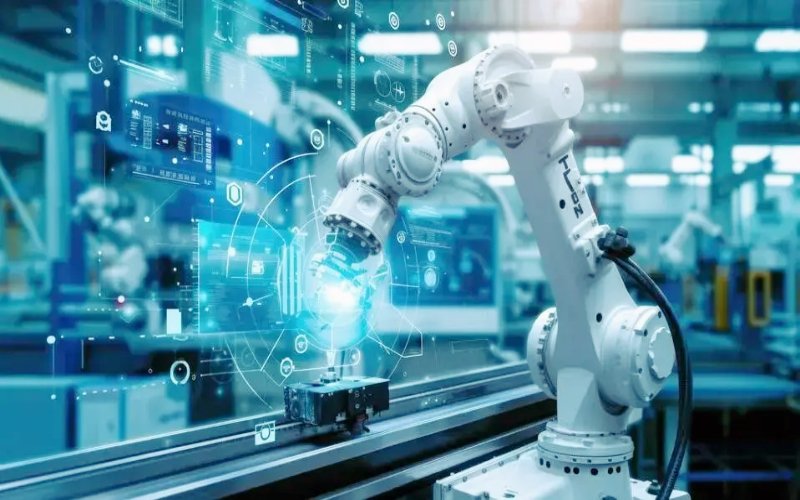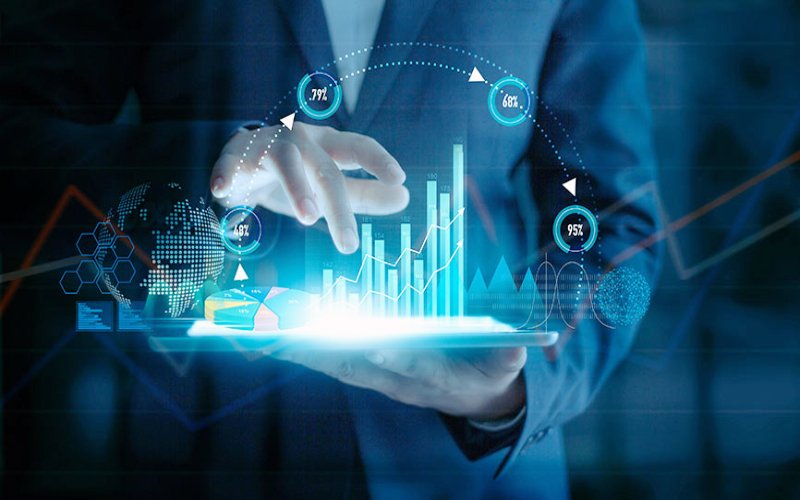The world of Human Resources (HR) is undergoing a monumental shift, thanks to the rise of Artificial Intelligence (AI). Traditional HR tasks—ranging from recruitment to employee management—are being streamlined, automated, and enhanced by AI tools, leading to what is now referred to as AI-Powered Human Resources. This technology is helping HR departments operate more efficiently, reduce bias, and improve the employee experience. In this article, we’ll explore how AI is shaping HR processes and the implications for the future of work.
Understanding AI-Powered Human Resources
What is AI-Powered Human Resources?
AI-Powered Human Resources refers to the application of AI technology, including machine learning, natural language processing, and predictive analytics, to various HR functions. By processing large volumes of data, AI can help HR teams make smarter, data-driven decisions. This technology improves efficiency, accuracy, and personalization in areas such as hiring, onboarding, and employee engagement.
HR departments that integrate AI into their workflows are able to free up time for strategic activities and achieve a deeper understanding of employee needs. This transformation of HR practices not only increases productivity but also fosters a more responsive and adaptive workforce.
Key Benefits of AI-Powered Human Resources
Streamlined Recruitment and Talent Acquisition
One of the most impactful applications of AI-Powered Human Resources is in recruitment and talent acquisition. Traditional hiring processes are often time-consuming and susceptible to bias, but AI streamlines these tasks by automating resume screening, candidate assessment, and even video interview analysis. AI-based recruitment tools use algorithms to quickly filter applicants based on skills, experience, and even personality traits.
Additionally, AI-powered chatbots can handle communication with candidates, providing updates and answering questions, which leads to a better applicant experience. With AI-Powered Human Resources in place, HR departments can focus on connecting with top candidates rather than spending time on administrative tasks.
Enhancing Employee Onboarding
Employee onboarding is another area where AI-Powered Human Resources shines. New hires often have a lot of questions and may need guidance as they adjust to their roles. AI-powered virtual assistants can guide them through paperwork, policies, and introductory training modules.
By providing support around the clock, these virtual assistants make the onboarding process more seamless and help new employees feel welcomed and supported. Personalized onboarding also increases retention rates, as employees have a smoother transition into the company culture.
Boosting Employee Engagement and Retention
How AI Helps Maintain Employee Engagement
Employee engagement is crucial for retention, and AI-Powered Human Resources is helping HR professionals track and improve it. AI-driven platforms can monitor employee satisfaction through surveys, feedback forms, and network analysis within the organization. This real-time data collection allows HR teams to identify trends and address any disengagement promptly.
For example, if an AI system detects a drop in morale among specific teams, HR can intervene with targeted strategies to improve engagement, helping to create a positive work environment and increase retention rates.
Performance Management with AI Insights
Performance management is often a challenging aspect of HR, but AI-Powered Human Resources is making it easier by enabling continuous, data-driven evaluations. AI tools monitor employee productivity, progress, and achievements in real time, giving managers immediate insights into performance.
With these insights, managers can provide more accurate feedback and craft personalized development plans based on data rather than subjective impressions. This transition to continuous performance tracking encourages a culture of ongoing improvement, where employees receive regular feedback and feel motivated to meet their goals.
The Strategic Role of Predictive Analytics in AI-Powered Human Resources
Workforce Planning with Predictive Analytics
Predictive analytics is a powerful tool within AI-Powered Human Resources that helps HR departments anticipate and prepare for future staffing needs. By analyzing data on turnover rates, skills gaps, and hiring trends, AI can project workforce requirements, allowing companies to stay agile and well-prepared.
Moreover, predictive analytics can identify employees who might be at risk of leaving, enabling HR to take preventive steps to retain valuable team members. This capability helps companies maintain stability and ensure that they have the talent needed to meet business goals.
Personalized Learning and Development Programs
AI is also reshaping training and development by offering personalized learning experiences. AI-powered platforms assess individual skills and recommend courses tailored to each employee’s needs, career goals, and performance. With AI’s real-time tracking, training programs can adapt to address specific skill gaps, providing a customized and engaging learning journey for each employee.
This personalized approach to training ensures that employees continuously develop relevant skills that benefit both their professional growth and the company’s objectives.
Addressing Bias and Promoting Diversity in AI-Powered Human Resources
Reducing Bias in Hiring and Promotion
A well-known issue in traditional HR is the presence of unconscious bias, especially in hiring and promotion decisions. AI-Powered Human Resources can mitigate these biases by using data-driven tools that anonymize resumes and focus on skills rather than personal characteristics.
By relying on objective criteria, AI helps create a more diverse and inclusive workforce. Studies show that diversity enhances creativity and problem-solving within teams, so these AI-driven efforts contribute to a more innovative and effective workplace.
AI’s Role in Creating an Inclusive Environment
Beyond hiring, AI-Powered Human Resources can support diversity through continuous monitoring of workplace interactions and sentiment. AI tools can detect patterns in employee engagement and collaboration, allowing HR to address potential issues and foster an inclusive culture that respects and values different perspectives.
Challenges and Considerations in Implementing AI-Powered Human Resources
Privacy and Data Security
While AI-Powered Human Resources offers significant benefits, it’s essential to address privacy and data security concerns. Employees may feel uneasy about extensive data collection and monitoring, so transparency and robust security measures are vital for maintaining trust. Organizations need to ensure that employee data is handled responsibly and ethically.
Addressing Algorithmic Bias
AI tools are only as unbiased as the data they’re trained on, which means that if an AI model is based on biased data, it may perpetuate those biases. Regular audits and updates to AI algorithms are crucial to ensure fair outcomes and maintain the integrity of AI-Powered Human Resources systems.
Conclusion: The Future of AI-Powered Human Resources
AI-Powered Human Resources is transforming the way organizations manage people, making HR processes faster, more accurate, and employee-centered. From recruitment and onboarding to engagement, performance management, and workforce planning, AI is bringing positive changes across all areas of HR. However, the responsible implementation of AI is essential to address privacy concerns and prevent algorithmic biases.
Looking ahead, AI will continue to evolve, offering more advanced tools that further empower HR professionals to build efficient, fair, and engaging workplaces. Organizations that embrace this technology responsibly will be better prepared to adapt and thrive in the evolving landscape of work.
Also visit on techitl.com.




